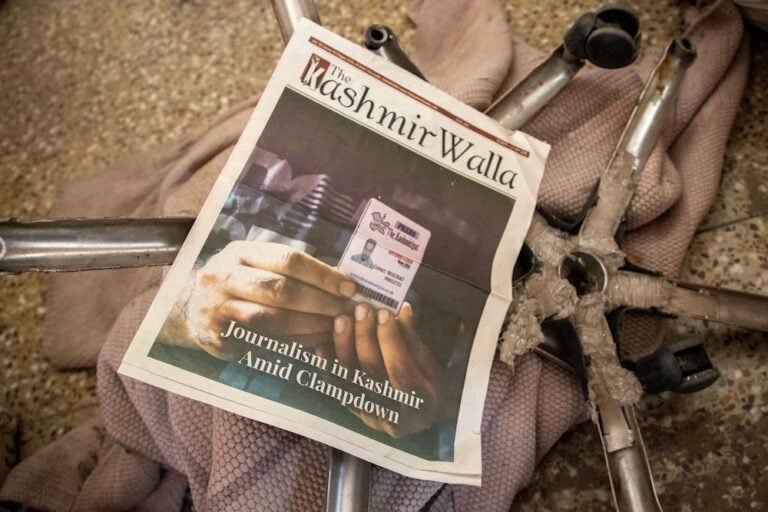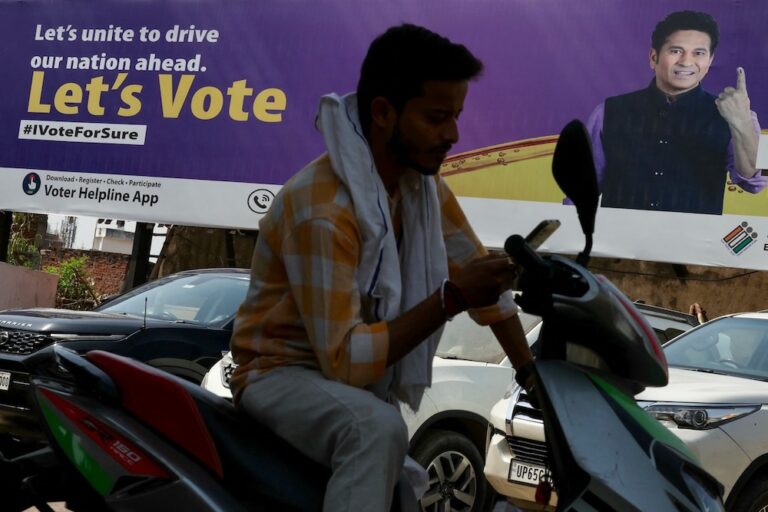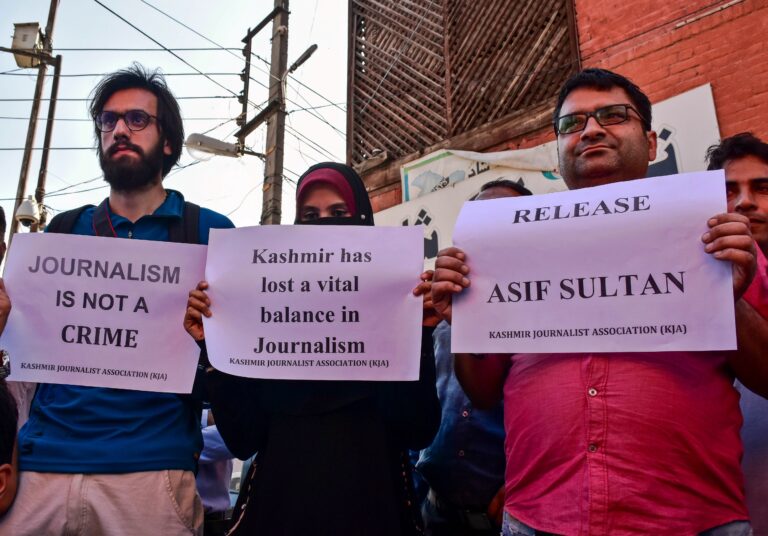(RSF/IFEX) – Reporters Without Borders calls on the federal government in New Delhi to explain why cable TV operators in the northwestern state of Jammu and Kashmir have been forbidden to carry several Pakistani TV channels. The organisation calls on the Indian authorities in charge of regulating the broadcast media to lift the ban and […]
(RSF/IFEX) – Reporters Without Borders calls on the federal government in New Delhi to explain why cable TV operators in the northwestern state of Jammu and Kashmir have been forbidden to carry several Pakistani TV channels. The organisation calls on the Indian authorities in charge of regulating the broadcast media to lift the ban and find a lasting solution that allows Kashmiris to watch the stations they want.
“All TV stations should, it is true, comply with the law and register with the authorities, but this ban is a violation of the right to information, which is protected by the Indian constitution,” the press freedom organisation said. “Now that relations between New Delhi and Islamabad are being normalised and Pakistan is starting to loosen its grip on privately-owned TV stations, this measure sends a negative signal and has deprived millions of homes of news and information.”
Cable TV operators in Srinagar, the summer capital of Jammu and Kashmir, suspended broadcasting of the privately-owned Pakistani channels Geo TV, ARY and Aaj and the state-owned Pakistani channel PTV at the behest of the authorities in New Delhi on 24 April 2008.
The Indian ministry of information and broadcasting said the Pakistani stations had failed to comply with an Indian broadcasting law which, since 11 November 2005, has required any foreign TV station to register with the Indian authorities and obtain permission in order to broadcast in India.
The Pakistani TV stations are very popular with the Kashmiri population, which is mainly Muslim. Some observers wonder what has pushed the Indian authorities to suspend these stations now, after tolerating them for several years.
Criticising the measure, the Pakistan Federal Union of Journalists (PFUJ) said: “This obstacle to the free flow of information is anti-democratic. It must be lifted.”
Many political groups in Srinagar have variously condemned the measure as “irrational” and “illogical in an era of communication and globalisation.” They have also said it could jeopardise rapprochement between India and Pakistan and “reinforce the most radical groups.”


